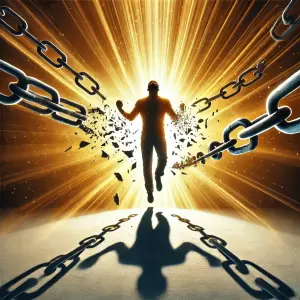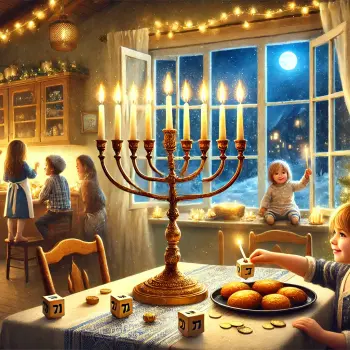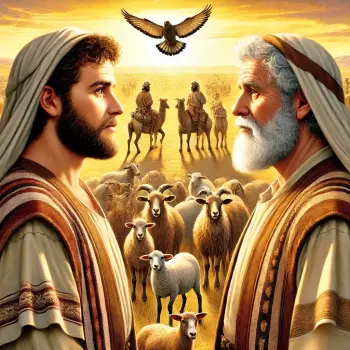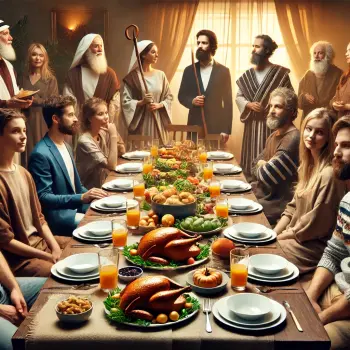
We all know a Joseph. Not a person named Joseph, I’m sure most of us know one of those. I mean someone like the biblical Joseph. I don’t mean the older, powerful, second-in-command of Egypt, Joseph. I mean the younger, spoiled, obnoxious, completely lacking in self-awareness and humility Joseph. The one whose very existence inspires thoughts and dreams of homicide or at least of a dark and disturbing fate.
We’ve had to suffer through at least one Joseph in school or work or sometimes even family. There’s even the Joseph in our neighborhood when we were growing up that we had to play with because even his dog couldn’t put up with him. And, admittedly, in some cases, the person
in question is more of a Josephine than a Joseph.
A Brother Named Joseph
The biblical Joseph was the next-to-youngest child born to Jacob. The first-born child of Jacob’s favorite wife, Rachel, was almost from birth favored over the children of Leah, Bilhah, and Zilpah. He was even preferred over his youngest full brother, Benjamin, whose birth led to their mother’s death.
The older brothers’ difficulties with Joseph came from several different sources. Their father obviously favored Joseph over them, gifting him with an ornamental tunic, or coat of many colors as it is more popularly known. Joseph was also coddled, helping the sons of Bilhah and Zilpah, rather than taking on full shepherding responsibilities. He was also a tattletale, delighting in bringing back bad reports to their father.
To make matters worse, Joseph shared his dreams. In one, sheaves of wheat belonging to his brothers bowed down to his own sheaf of wheat. After that dream received a somewhat chilly reception, rather than keeping matters to himself, he shared his next dream as well. In that one, the sun, moon, and eleven stars were bowing down to him.
One day, the spoiled child of privilege was sent out by Jacob to find his brothers and report back on them and the status of the flocks. Joseph heads to where he thinks his brothers are, near Shechem, but they’re not there. A man in the middle of nowhere finds him wandering in the fields and asks what he’s looking for. Joseph says he’s looking for his brothers and the man coincidentally overheard them saying they were heading toward Dothan.
As Joseph moves onto the right path, the brothers see “that dreamer” heading toward them and they conspire to kill him. Well, most of them do. Reuben says, let’s shed no blood ourselves; throw him into a pit and let nature take its course. So, they strip him of the pretty tunic and throw him into the pit. Reuben intends to go back later and free him, but during lunch, Judah sees a caravan of Ishmaelite traders and comes up with the idea that we can sell him to the Ishmaelites, be free of him, and make a profit. Reuben, who for some reason is working through lunch, comes back, sees the empty pit and thinks, what are we going to do now? Dipping the tunic in lamb’s blood, he concocts the story of Joseph being killed by a wild animal to offer an explanation to their father of Joseph’s fate. The remainder of Genesis, thirteen chapters, is devoted to the life of Joseph.
Biblical Dysfunction
One can understand the antipathy the brothers felt toward Joseph, even if they took matters too far. While they are completely responsible for their actions, a root cause of the problem is generational family dysfunction. Isaac and Ishmael quarreled (and their descendants still haven’t stopped). Sarah wanted the possibility of Ishmael’s succession quashed, leading to Abraham reluctantly expelling Ishmael. Jacob and Esau didn’t get along, with Rebekkah favoring Jacob, and Isaac, Esau. The enmity continued for centuries until eventually Esau’s descendant, Herod, ended up ruling over Jacob’s descendants. Once again, that didn’t work out very well for anyone. After several generations, dysfunction becomes the norm. Plotting, deceit, and secret plans are normalized. By the era of Jacob’s children, how else would you deal with a problem sibling other than death or exile?
Contemporary Applications
The failure to address real problems, generation after generation, is still with us. How often have we witnessed one generation learning the wrong lessons from the previous generation. We’ve seen cycles of violence, substance abuse, poverty, racism, and more because “that’s just how things have always been”.
Sometimes it takes a dramatic act to break the cycle. Joseph’s descent into Egypt and subsequent rise within Pharaoh’s court was able to give him a different way of looking at the world and at family. He made conscious decisions to test his brothers and see if they had changed. When they later stand up for Benjamin and refuse to abandon him, he realizes that they aren’t the same people who sold him into slavery and so reveals himself to them.
Sometimes change begins with a simple, completely ordinary act. If Joseph had not seen the unnamed stranger in the field or the stranger hadn’t overheard the brothers, Joseph might have returned home and who knows what might have happened next.
These seemingly random acts have the capacity to create tremendous change, but we have to be aware and willing to respond to them. When Jacob called on Joseph to send him to check on his brothers, Joseph’s response was “Hineni – Here I am.” Hineni is about more than just being physically present, it’s also about being spiritually and emotionally ready to act. It is Abraham’s response when God asks him to sacrifice Isaac and Moses’ at the burning bush.
Joseph was ready for change. I don’t think he could have even imagined the path he would take. But he responded to his father and responded to the stranger which led him down his own road. We still have opportunities and choices before us every day. Let us be ready to respond and break the cycles to “it’s always been that way.” Who knows, maybe our Joseph is there as the stimulus for change.

















